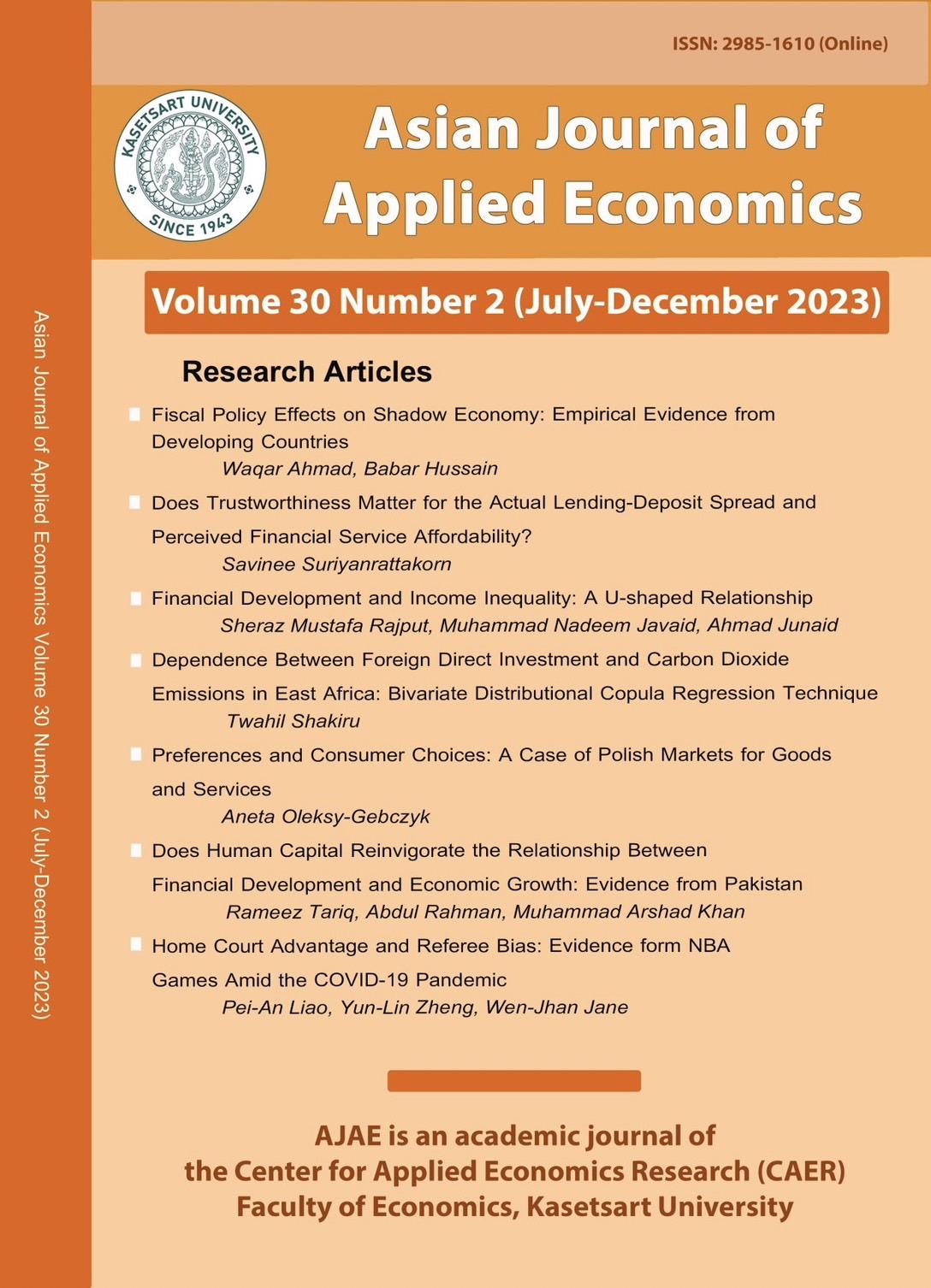Editorial Note
Main Article Content
Abstract
This Volume 30, No. 2 (July-December 2023) marks the inaugural online-only publication for the Asian Journal of Applied Economics (AJAE), formerly known as the Applied Economics Journal (AEJ). This alteration in nomenclature serves to sharpen its focus, endowing it with greater distinctiveness, and aligning it with the novel ISSN criteria outlined by the TCI, designed to raise Thai journals to a global standard. Our web presence and Facebook page remains unaltered. However, kindly note that our contact email address has been updated to ajae.eco@ku.th. Please don't hesitate to reach out if you have any inquiries regarding our journal. Kindly note that our focus and scope have undergone slight modifications, outlined below:
The Asian Journal of Applied Economics is dedicated to the application of economic theories, concepts, and methodologies in analyzing well-defined research issues. It encourages empirical analysis, simulation, prediction, and forecasting research. While its primary focus is on Asian economies, the journal also welcomes articles that address global issues. The journal seeks submissions in applied economics and related fields that are pertinent to policy decisions and provide practical solutions to real-world problems. This includes, but is not limited to, topics such as agricultural productivity and innovation, climate change and climate risk, population and human health, poverty and inequality, sustainable development, trade and commerce, banking and financial innovation, as well as all other micro and macro aspects of applied economics.
In this July-December 2023 issue, a collection of articles presents a range of empirical findings within the field of applied economics. The initial four articles delve into significant research matters employing cross-country panel data, carrying intriguing ramifications for policymakers in Asian economies. For instance, they explore methods to manage the scope of the shadow economy, examine how trust can mitigate financial service expenses, analyze the impact of financial development on income inequality, and investigate the relationship between foreign direct investment (FDI) and CO2 emissions. The remaining articles adopt case-specific empirical analyses, spotlighting vital implications across diverse subjects such as consumer preferences, human capital and financial development, and the basketball no-fan policy and referee bias. The summaries of these articles are shown in the PDF.
Article Details

This work is licensed under a Creative Commons Attribution-NonCommercial-NoDerivatives 4.0 International License.
The paper is published under CC BY-NC-ND, in which the article is freely downloaded and shared in its original form non-commercially and its citation details are identified.


